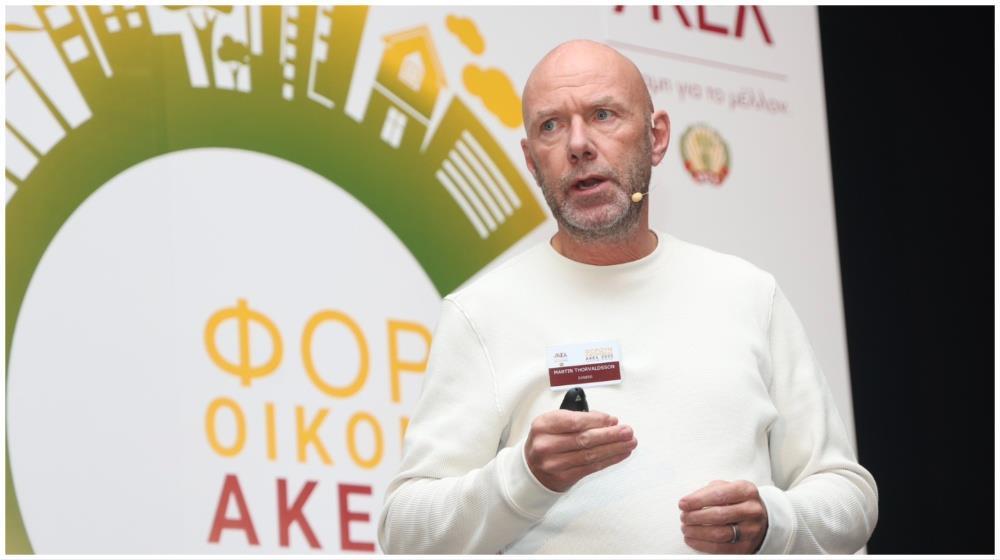“Long-term returns increase when there is good corporate social responsibility,” said Martin Thorvaldsson, Community Director of Exness.
Speaking at the AKEL Economic Forum 2025 on 19 November, Thorvaldsson analysed how corporate responsibility, corporate culture and a strategic approach to social contribution can enhance a company’s performance and sustainability, especially in the technology and startup sectors.
The world is changing and expectations of companies have increased. Customers, employees, the state and society at large demand that businesses be more than just profit-makers. As he says, younger generations are investing in ethics, transparency and social contribution of organizations and highly skilled workers are choosing employers that meet these values.
Businesses that incorporate responsibility into their culture not only achieve better financial results in the long term, but they build a framework of trust and internal loyalty that determines their true value in the marketplace.
Thorvaldsson emphasised that a company’s primary mission remains to create value for shareholders, but social responsibility and ethical business conduct are factors that enhance performance. A company’s culture, he said, goes beyond strategy. It is how people behave when no one is watching that determines the true strength of an organisation. When responsibility is embedded in the DNA of the business, strategy becomes essentially secondary as employees act with values and purpose.
Experience from technology companies, such as TechIsland members, shows that culture can create immediate and measurable impact. Thorvaldsson cited the example of the fires in northern Limassol, where Exness employees mobilised within an hour to transport supplies to affected communities, showing how practical commitment and a culture of collaboration go beyond simple strategy or communication efforts.
An important message of the speech was the integration of social responsibility into the basic processes and decisions of the company. CSR projects should not be just communication tools or isolated actions, but should be planned with the same precision and logic that is applied to business strategies. Thorvaldsson underlined the need for clear targeting, measurement of results and evaluation, as would be done in any business venture.
Creating a culture of accountability takes time and investment, but it offers multiple benefits. Companies attract and retain better talent, employees are more engaged, and the business gains positive recognition from society. For proprietary technology companies, accountability takes on special meaning as owners aim for legacy and corporate reputation that goes beyond financial results.
Through the practices he presented, Thorvaldsson highlighted an innovative project in Cyprus, 'United Rescue Cyprus', which aims to create a volunteer first aid network linked to an application and call management service. The project addresses the critical time gap between the call to 112 and the arrival of the ambulance, enhancing social safety with measurable results. At the same time, the implementation requires a business structure and processes, demonstrating the connection between business efficiency and social contribution.
Thorvaldsson also highlighted the importance of public-private partnerships, which enhances the credibility and scale of actions. He stressed that corporate social responsibility only acquires substantial value when the offering has depth, measure and consistency, rather than being limited to communication actions or charitable donations without follow-up.
In closing, he called on companies to see social responsibility as a strategic advantage that connects profitability, values and social contribution. Business ethics and a good corporate culture are not luxuries but key factors in developing and maintaining a competitive advantage. As he stated, businesses can contribute substantially to improving the world, while at the same time enhancing the sustainability and efficiency of their own operations.
(Source: InBusinessNews)









